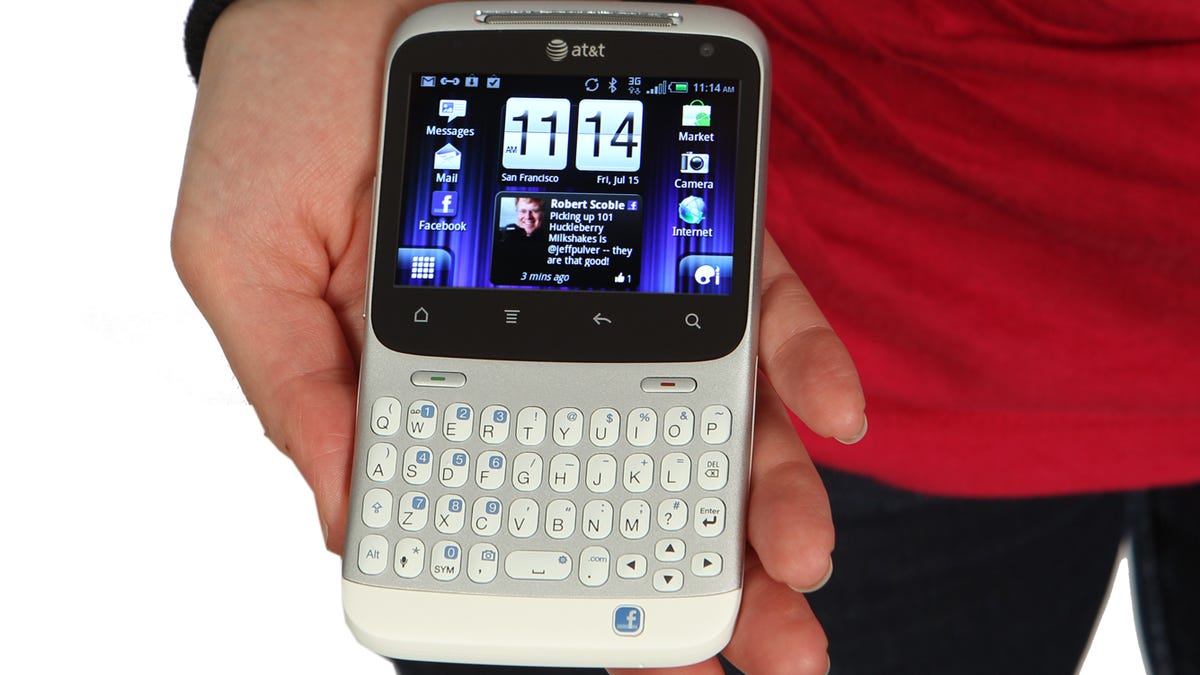Why Facebook doesn't need its own phone
Rumors about a Facebook phone didn't pan out with today's press event, and here are four good reasons why.

commentary Facebook ended yet another press conference without mentioning a smartphone or mobile operating system bearing its branding. Should we be surprised? No. Are we? Sadly, yes.
Months of rumors fueled expectations that Facebook would move into mobile in a bigger way, including unveiling -- with a handset partner -- a phone of its own. Such talk heated up in recent days after reports of a Facebook phone started popping up. Truth be told, it's a sexy enough story that everyone wants to believe it will happen.
Apparently, we all need to listen to CEO Mark Zuckerberg a little bit more. Zuckerberg has time and time again denied getting into the phone business, noting that it doesn't make sense.
Zuckerberg is right. Facebook has plenty of good reasons to steer clear of involvement in the mobile phone game, whether it's from the operating system side or with actual products.
1. Smartphones are a rough business
Have you followed the smartphone business? Unless you work for Apple or Samsung, it has not been a good run. Virtually every other handset vendor has lost money, and the only other notably profitable company, HTC, is on a downward slide.
It's easy to see why. It's getting increasingly difficult to stand apart from the legions of low-end and midtier Android phones flooding the market, and the products that do face stiff competition from superphones made by everyone else. The smartphone game is increasingly about brand awareness, and Apple and Samsung have the market cornered.
2. Carriers are a headache
If Facebook were to enter the hardware business, it would have to deal with things like a retail channel, distribution, and relationships with the carriers. The carriers are highly protective of the quality of the service, and often make the handset vendors jump through extensive hoops to get approval for sale.
Facebook's experience lies with software and the user experience -- the company isn't used to dealing with a physical product. Why start now?
3. The OS market is already saturated
A Facebook OS would be a profound waste of R&D dollars because mobile users don't need another smartphone OS.
In 2013, we'll see smartphones running two dominant mobile operating systems: Android and iOS, and two secondary OSes: BlackBerry 10 and Windows Phone 8. In addition, Ubuntu, Firefox, and Tizen have all promised handsets running their own niche operating systems.
After The Great Smartphone OS Consolidation of 2010, a Facebook foray into the OS world would be imprudent, with success against rival Google a long shot at best, even on a few one-off phones.
Besides, building an operating system takes years of hard work involving every software facet. It's hard to do right and many fail. If Facebook were to march into deeper software territory, it'd be better off working with a partner, like HTC or Samsung, to contribute a deeper social experience as part of the manufacturer's custom OS layer that usually runs on top of Android.
4. Facebook needs to concentrate on apps
Facebook needs to get its act together when it comes to the apps found on other platforms. The company doesn't yet have a clear strategy on mobile and is still trying to figure out a smart way to make money in that area. So far, it's drawn a blank.
In addition, many users complain that the Facebook experience on mobile has grown stale. Innovating Facebook's mobile apps should be its number one mobile priority.
Facebook's been down this road...and it wasn't pretty
Earlier rumors that saw Facebook buddy up with HTC were plausible because such a partnership has actually happened before. At Mobile World Congress in 2011, the social network paired with the handset-maker on the HTC Status (known globally as the ChaCha) and the HTC Salsa, both smartphones with a dedicated Facebook button that fast-tracked users to a status update.
Let's just say that despite Facebook's raging popularity, the phones -- riddled with usability "quirks" -- never quite caught on.
Is a Facebook-branded phone out of the question in the future?
No. Facebook could eventually get its mobile strategy together and introduce a Facebook-inspired smartphone or even its own mobile operating system. The company, like Google, wants to "own" the full user experience, and there's no better way of doing that than with a personal item like a mobile device.
Still, Facebook faces the same kinds of challenges as any other smartphone player does, so don't expect the company to go wading into deep mobile waters anytime soon.



